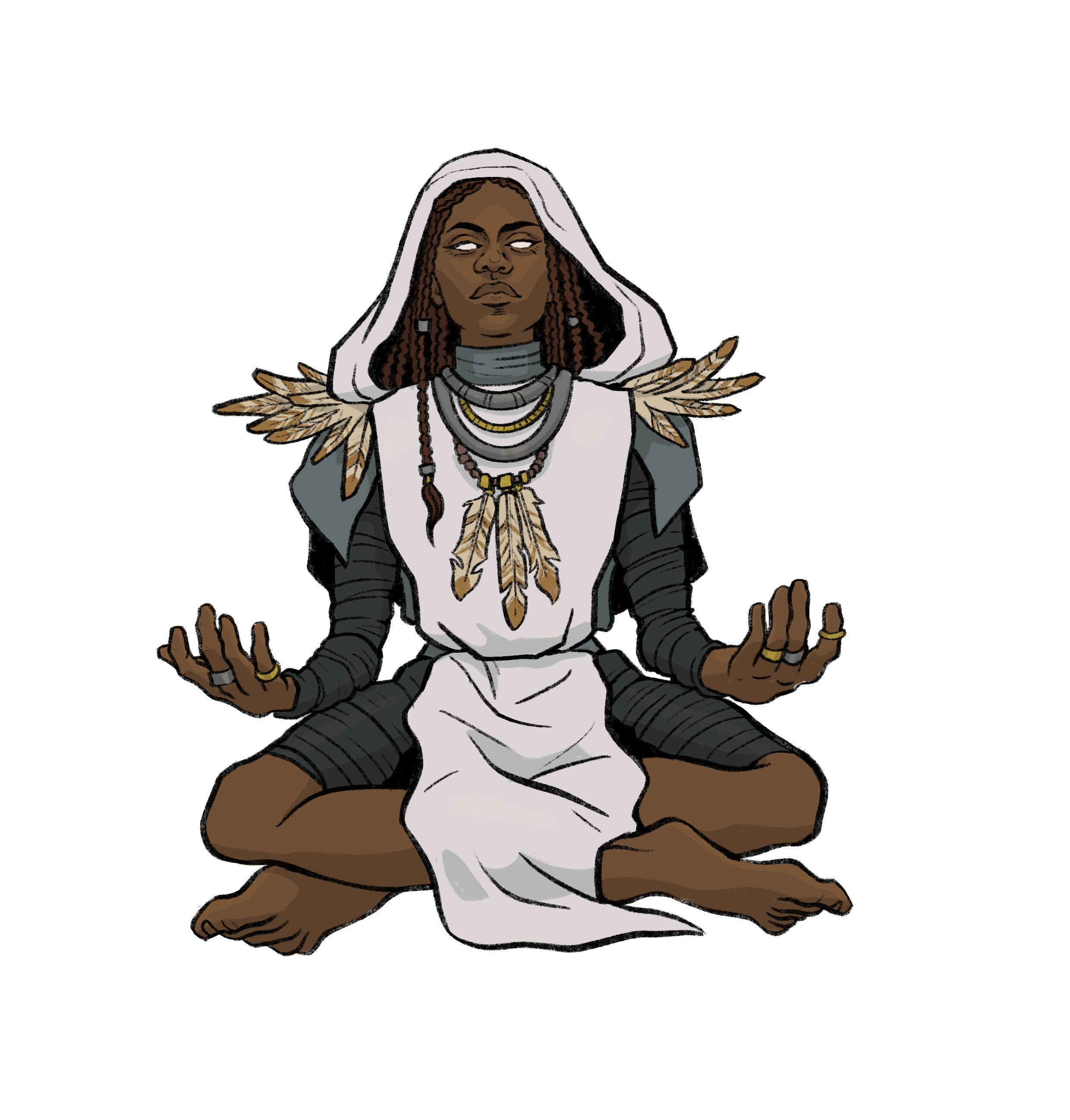Only lowlanders may become High Priests. Though some deem this discriminatory, the High Kestrel defends the restriction on the basis that lowlanders are overwhelmingly more likely to commune with the bestial spirits. There are presently seven High Priests, and each one expresses their faith in unique ways. Some cover themselves in feathers to emulate the spirits, while others spend hours upon hours in meditation. All are called upon to offer guidance as needed, and none are expected to contribute to Falthringor’s agricultural needs. High Priests must remain celibate.

Henryka (she/her) is most popular among the commoners. Though she speaks with grace and authority, she also conspires to overthrow the High Kestrel. Adventurers critical of House Wenjansk will find an ally in her.
Kazimiera (she/her) has never once communed with any spirits, though she hides this fact with her unrivaled fervor and enthusiasm.
Romuald (he/him) believes that the best way to honor the spirits is to provide for those in need. He spends his days raising goats and sharing their milk and fur with the needy.
Nikodem (he/him) has communed with each of the birds of prey, but is also regularly summoned to speak with the Discerning Hound. He cannot say why the canine spirit favors him.
Lilia (she/her) protects the skeptics who would otherwise end up in prison for their blasphemy. Those who have doubts regarding the wisdom or divinity of the bestial spirits can seek counsel with High Priestess Lilia .
Weronika (she/her) defies the High Kestrel by training her acolyte Unjitrir, a giant. Mariusz swears he will not allow the giant to become a High Priest, but Weronika persists nonetheless.
Jerzy (he/him) believes himself to be a messianic figure. He has received visions from the Great Falcon that seem to imply he will rid the world of a great evil. He is cocky, but does not know how to go about claiming his destiny.
On the Divinity of Nature Spirits
Are people actually getting whisked off to the spirit realm to talk with nature deities that provide cryptic advice? Maybe! That’s entirely up to you. If you want to run a comparatively “grounded” campaign (or at least… a grounded campaign in which alchemy and giants are real), you can always provide alternative explanations for the phenomenon. Perhaps lowlanders are predisposed to suffer hallucinations, or maybe there is a true God, but He can only communicate with mortals by sending bestial emissaries. Alternatively, perhaps the spirits are real, but they aren’t divine. They’re just weird creatures communicating from some parallel reality.
The decision should come down to the role of faith in your campaign. Are Gods pulling strings to influence the events of your adventure? Or is religion just a cultural system that binds societies in common practice? Are deities akin to magic, or do they exist wholly separate from the arcane laws and principles of your world?